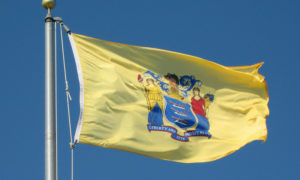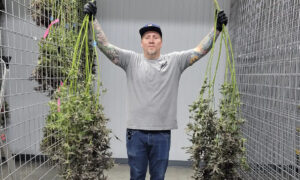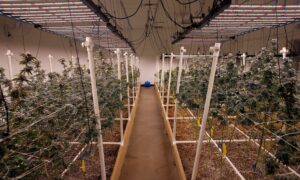New York Cannabis Licensing, Part 1: MRTA Adult Use License Types

Our friends at Harris Bricken take a look at the new Adult Use license types
Next up in our series of posts on New York’s Marijuana Revenue and Taxation Act (MRTA) is a deep dive into the adult-use licensing provisions. There is a lot to unpack here and a wealth of information on the license types and the licensing process. So much so that we will be splitting our summary of the MRTA’s adult-use licensing provisions into 3 parts.
Part 1 details the types of licenses authorized by the MRTA and restrictions governing each type of license. Part 2 will detail the MRTA’s provisions regarding the license application process. Part 3 will go over New York’s social and economic equity program and everything else applicants need to know about adult-use licensing.
Before we get started, the standard caveat: the MRTA only provides the framework for the adult-use licensing process. The rules and regulations governing the application process and New York’s cannabis industry will be developed and implemented by the Cannabis Control Board (CCB). Our summary is based only on the text of the MRTA, and the actual rules and regulations may be different once the CCB begins its rulemaking process.
Now let’s get into it. The MRTA authorizes several different license types, each of which allow licensees to provide a defined list of services. The initial licenses will expire 2 years after issuance. There are express restrictions on having multiple licenses, which has the general effect of prohibiting vertically integrated cannabis businesses. The license types:
Cultivator Licenses
What activities are authorized? In short, growing and selling cannabis to any processor licensed by the CCB. “Cultivation” includes every part of the agricultural process, including planting, growing, cloning, harvesting, drying, grading, and trimming cannabis.
What are the licensing limitations? Licensees are also allowed one processor license and one distributor license, but only for processing and distributing the licensed cultivator’s own products.
What else do I need know?
- The CCB may create rules that permit a limited amount of processing without a processor’s license.
- The CCB may authorize cultivator licensees to operate in more than one location (but not to have more than one license).
Registered Organization Adult-Use Cultivator Processor Distributor Retail Dispensary License
What activities are authorized? Basically, the same activities as vertically integrated Registered Organizations, but with adult-use retail sales only allowed at 3 of the Registered Organization’s medical dispensaries and limited to the Registered Organization’s own products.
What are the licensing limitations? Licensees cannot hold any other adult-use licenses.
What else do I need to know?
- The Registered Organization must maintain its medical cannabis license and continue offering medical cannabis (the degree of the continued medical cannabis sales will be determined by the CCB).
Registered Organization Adult-Use Cultivator Processor Distributor License
What activities are authorized? The same activities as adult-use cultivator, processor, and distributor licensees.
What are the licensing limitations? Licensees cannot hold any other adult-use licenses.
What else do I need to know?
- A Registered Organization licensed as an adult-use cultivator, processor, and distributor can only distribute its own products.
Processor License
What activities are authorized? Buying cannabis from licensed cultivators, processing the cannabis (blending, extracting, infusing, packaging, labeling, branding and otherwise making or preparing cannabis products), and selling cannabis products to licensed distributors.
What are the licensing limitations? Licensees are allowed one distributor license for distributing their own products, but no other licenses.
What else do I need to know?
- A processor cannot engage in any other activities at the licensed location.
- The CCB may authorize processor licensees to operate in more than one location.
- The CCB will issue minimum operating requirements for processor licensees.
Cooperative License
What activities are authorized? Basically, the cooperative license allows for vertically integrated operations: acquisition, possession, cultivation, processing, distribution and sale from the licensed premises.
What are the licensing limitations? To qualify as a cooperative, the licensee must:
- Be comprised of New York residents;
- Be registered as an LLC, LLP, or another business structure as authorized by the CCB;
- Subordinate capital, both in terms of control over the cooperative undertaking and the ownership of the pecuniary interests arising from the cooperative’s operations;
- Be democratically controlled by the cooperative members on a one vote per member basis;
- Vest in and allocate with priority to and among cooperative members of all increases arising from their cooperative in proportion to the members’ respective active participation; and
- Must operate according to the 7 cooperative principles publish by the International Cooperative Alliance in 1995.
What else do I need to know?
- Cooperative members cannot be members in more than one cooperative.
- Cooperatives and cooperative members cannot have any interest in any other licensees.
- The CCB will issue regulations for cooperatives, including canopy limits on the size and scope of cooperative licenses, with the goal of incentivizing the use of cooperatives.
Distributor License
What activities are authorized? Purchasing cannabis and cannabis products from authorized licensees and selling cannabis and cannabis products to retail dispensaries and on-site consumption sites.
What are the licensing limitations? Distributor licensees can only have interests in a cultivator and processor licensee, but can then only distribute cannabis cultivated and processed by such licensee.
What else do I need to know?
- Distributor licensees can charge an appropriate fee (as authorized by the CCB), for distributing cannabis, including based on the volume of cannabis distributed.
- The CCB will issue minimum operating requirements for distributors.
Retail Dispensary License
What activities are authorized? Selling and delivering cannabis and cannabis products from a licensed premises.
What are the licensing limitations? No person can have an interest in more than 3 retail dispensaries. If a person or entity has a retail license, the licensee cannot have any other license issued under the MRTA.
What else do I need to know?
- Applicants for a retail license must demonstrate ownership or possession of the premises to be licensed within 30 days of final approval of a license through a lease, management agreement, or another agreement, with the lease term at least as long as the license period.
- Retail dispensaries must be located in a storefront, with the principal entrance accessible from street level and located on a public thoroughfare.
- The licensed premises must be commercial and at least 500 feet from any school or 200 feet from any house of worship.
Microbusiness License
What activities are authorized? Limited cultivation, processing, distribution, delivery, and sale of the microbusiness’ own cannabis and cannabis products.
What are the licensing limitations? Microbusinesses cannot hold any interest in any other license and can only distribute their own cannabis and cannabis products to retail dispensaries.
What else do I need to know?
- The size, scope, and eligibility of microbusinesses will be determined by the CCB.
- Microbusiness licenses will be issued in a manner that promotes social and economic equity applicants.
Delivery License
What activities are authorized? Delivery of cannabis and cannabis products independent of another adult-use cannabis license.
What are the licensing limitations? Delivery licensees cannot have more than 25 individuals providing fulltime paid delivery services per week. Delivery licensees cannot have an interest in more than one delivery license.
What else do I need to know?
- The criteria and scope for permitted activities for delivery licensees will be determined by the CCB.
- Delivery licenses will be issued in a manner that promotes social and economic equity applicants.
Nursery License
What activities are authorized? The production, distribution, and sale of clones, immature plants, seeds, and other agricultural products used for planting, propagation, and cultivation of cannabis.
What are the licensing limitations? Cultivator licensees may be issued one nursery license to sell directly to other cultivators, cooperatives, microbusinesses, and registered organizations.
What else do I need to know?
- The Office of Cannabis Management will provide recommendations for the application process, license criteria, and scope of licensed activities.
- Nursery licenses will be issued in a manner that promotes social and economic equity applicants.
On-Site Consumption License
What activities are authorized? The sale and consumption of cannabis and cannabis products, including smoking and vaping, within the licensed premises.
What are the licensing limitations? Owning an interest in up to 3 on-site consumption licenses is permitted, but a licensee cannot have an interest in any other license authorized by the MRTA.
What else do I need to know?
- Applicants for an on-site consumption license must demonstrate ownership or possession of the premises to be licensed within 30 days of final approval of a license through a lease, management agreement, or another agreement, with the lease term at least as long as the license period.
- The licensed premises must be commercial and at least 500 feet from any school or 200 feet from any house of worship.
- No one under the age of 21 can enter on-site consumption facilities.
That covers all of the license types. The biggest takeaway is that vertical integration is generally prohibited. Prospective applicants will have to give a lot of thought to the specific license sought. As it stands now, once a license is issued, the licensee is confined to operating in a defined segment of New York’s cannabis industry. Stay tuned to the Canna Law Blog for Part 2 on the MRTA’s licensing provisions.
Source: Canna Law Blog




































